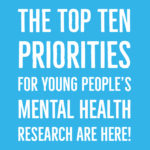Panic disorder is where you have recurring and regular panic attacks, often for no obvious reason. Everyone experiences feelings of anxiety and panic at certain times during their lifetime. It is a perfectly natural response, particularly when you are in a dangerous or stressful situation. However, for people with panic disorder, feelings of anxiety, stress and panic occur regularly and at any time.
Individual, group and guided self-help CBT for panic disorder: most delivery formats equally effective, but more evidence needed

Hannah Wallace summarises a network meta-analysis comparing four different formats of CBT for panic disorder, which finds “no efficacy differences between CBT delivered as guided self-help, or in the face-to-face individual or group format in the treatment of panic disorder”.
[read the full story...]







![Refugees face a substantially higher risk of psychotic disorders compared to non-refugee migrants [see previous blog].](https://www.nationalelfservice.net/cms/wp-content/uploads/2016/03/6862450441_e83a504169_b-150x150.jpg)
